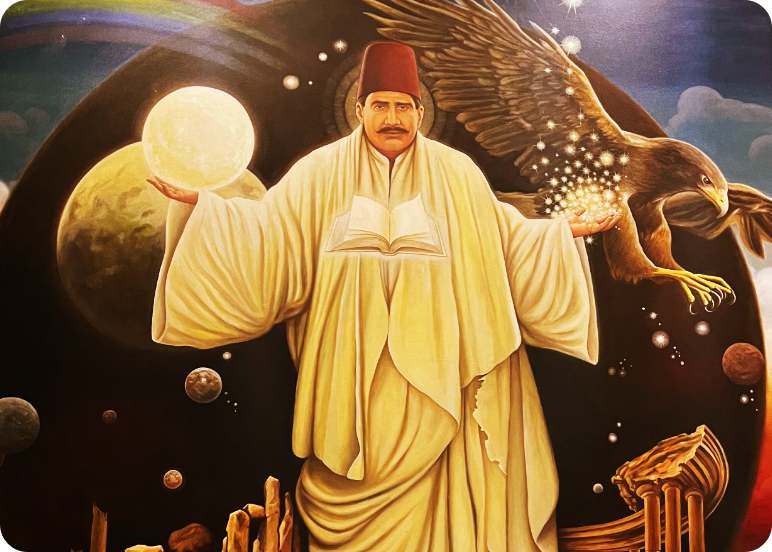On this belief, Dr. Allama Iqbal differed from other Sufis
On this belief, Dr. Allama Iqbal differed from other Sufis
Dr. Allama Muhammad Iqbal belonged to an era where, under colonial rule, there was a sense of disappointment and loss of self-respect, especially for Muslims. During his time in Europe, Dr. Iqbal underwent a transformation in his thoughts as he pondered over concepts of Western-style liberty and democracy. The concept of Khudi, both self-awareness and self-respect, was born during this time.
Many previous thinkers were of the view that Muslims must adopt Western education and culture to progress and even advised getting rid of Khudi, which they considered as ego.
However, Iqbal differed from such thinkers as well as Sufis radically. This view is depicted in the following verses, which appear simple on the surface but hold deep meanings:
بے تو از خواب عدم چشم کشودن نتواں
بے تو بودن نتواں، با تو نبودن نتواں
Without You [God], we cannot open our eyes from the sleep of non-existence
Without You, being is impossible. But being with You, not being is also impossible

Allama Iqbal and Khudi
Allama Iqbal and Khudi
Iqbal addresses God here, stating that without God, human existence cannot come into being, as the creation of humans is impossible without God. This couplet highlights the metaphysical reality of human existence, asserting that God is the ultimate reality, and human existence is because of Him.
However, in the second line, Iqbal presents a paradox: being with God and yet not existing is also impossible. Here, Iqbal speaks of the individuality and uniqueness of human beings. Contrary to the Sufi belief, Iqbal’s idea is that a person retains their individuality even when they are close to God.
To summarize, the difference:
Sufi Belief: According to Sufis, the final stage of human spiritual evolution is the state of “Fana Fillah,” where a person completely annihilates their ego and becomes one with God.
Iqbal’s Belief: Iqbal believes that although moral and spiritual evolution is crucial, a person does not lose their individuality in this process. According to Iqbal, a person retains their selfhood while getting closer to God, maintaining their uniqueness.
Dr. Allama Iqbal’s belief follows Mualana Rumi’s philsophy of preferring ‘Baqaa’ [persistance of being] instead of ‘Fanaa’ [Annihilation] whom he always called his spirtual mentor. Below verses by Maulana share the same thinking:

بزیر کنگرہ کبریاش مردانند
فرشتہ صید و پیمبر شکار و یزداں گیر
مولانا رومی
اللہ تعالٰی کے عظیم مقام کے نیچے ایسے مرد ہیں جو فرشتوں کو پکڑ لیتے ہیں، نبیوں کو اپنا شکار بناتے ہیں، اور خدا تک پہنچ سکتے ہیں۔
Beneath the station of God’s absolute glory, there are people who can ensnare angels and His messengers, and have access to Allah Almighty Himself.
علامہ اقبال نے اپنے مرشد مولانا روم کی طرح اسی خیال کو ایک اور طریقے سے بیان کیا ہے:
در دشت جنون من جبریل زبوں صیدی
یزداں بہ کمند آور اے ہمت مردانہ
اقبال
میرے جنون کے جنگل میں جبرئیل آسان شکار ہے۔ اے ہمت مرد، تو اپنی کوشش سے خدا کو پکڑ لے۔ یعنی اپنے اندر خدائی صفات پیدا کر۔
In the forest of my passion, Hazrat Jibreel [Gabriel] is an easy prey. If you have the courage, capture God Himself, by develop divine qualities within yourself.
In Iqbal’s philosophy, the concept of human selfhood and individuality holds significant importance, and this belief is evident in his verse. According to him, a person maintains their individuality while being close to God and keeps their existence intact along with God’s existence.



